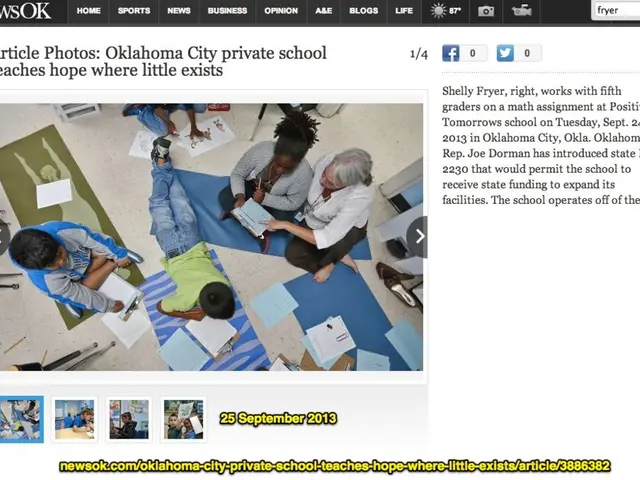Magic and Politics in the Realm: The Link Between Authority and Sorcery
In the past decade, fantasy tales have grown remarkably popular, enticing readers with engaging characters, knotty plots, and high-stakes political squabbles. Though we may find ourselves swept away by the existence of dragons, spells, and medieval landscapes, these stories hold a familiar ring-they often resemble the power struggles of our own world.
In crafting the "Ravenglass Throne" series, I found myself drawing numerous comparisons between fantasy politics and the realities of power. Frequently, these parallels were intentional; at other times, they were completely unconscious.
Political Commentary Through Fantasy
Since time immemorial, authors have utilized fantasy as a means to delve into real-world issues from a safe distance. By shifting political conflicts to fictional realms, they can explore sensitive topics without directly challenging prevailing power structures. This tradition dates back to works like Swift's "Gulliver's Travels" and continues in modern political fantasy.
In the "Ravenglass Throne," the struggle between noble houses following the king's assassination mirrors historical succession crises. Baron Gerlach's manipulation of evidence to frame House Darius echoes real-world propaganda tactics. Sabotaging reputations through false information has long been a tool wielded by political players. By setting these dynamics in a fantasy setting, readers can detect familiar patterns.
Three Manifestations of Power
Political scientist Joseph Nye distinguished between hard power (military and economic coercion) and soft power (persuasion and influence). In the "Ravenglass Throne," these concepts manifest as three royal sisters:
Irmin: Hard Power
Irmin embodies military might and direct action. Believing in confronting threats head-on, she exemplifies the enduring importance of military force in politics. However, the series also probes the limitations of raw force. Even the sharpest sword cannot cut through corruption, deceit, and divided loyalties.
Elana: Soft Power
Elana represents diplomatic influence and alliance-building. She understands that perception frequently outweighs reality. In both fantasy and modern politics, power often operates through narrative control and relationship management rather than sheer force. Her visual impairment highlights that underestimated individuals often develop alternative means of exerting influence.
Adelinde: Structural Power
Adelinde embodies knowledge as power. She personifies what political theorists term structural power-the ability to shape the systems others are forced to operate within. Her pursuit of knowledge about ravenglass exposes vulnerabilities and opportunities, demonstrating how specialized knowledge can influence political discourse.
The trio of approaches to power reveals an essential truth—real-world leadership is rarely one-dimensional. The most successful rulers encompass multiple forms of influence. Just as the three sisters must learn to unite their strengths, successful leaders tailor their methods to face various challenges.
The Political Economy of Magic
Often, fantasy treats magic as a mystical force, detached from economic and political concerns. In the "Ravenglass Throne," I aimed to explore the inevitable politicization of a magical resource. The control of ravenglass in Ostreich mirrors how access to oil, minerals, or water influences political leverage in our world. Those who control these resources exert immense influence while those without are left vulnerable.
The Guardians' knowledge of ravenglass reflects how technical expertise can translates into political authority in today's society. The corruption permeating the ravenglass network addresses environmental degradation and resource depletion concerns. Just as real-world nations face consequences of using finite resources, Ostreich's leaders must confront the consequences of assuming the magical foundation is limitless.
Identity Politics in Fantasy Realms
Modern political conversations frequently revolve around identity—race, gender, class, and privilege. Fantasy frequently reflects these themes while offering opportunities to reimagine them.
In the "Ravenglass Throne," the question of whether a woman can inherit the throne resembles real-world debates on gender and leadership. Elana's visual impairment challenges conventions about disability. The different perspectives of wyverns and humans reveal how political systems often overlook affected groups.
Personal Politics
Fantasy and real-world politics share one fundamental truth: power structures are primarily shaped by personal relationships, loyalties, and betrayals. Behind every major political shift, whether in Ostreich or our world, lie individuals with complex motivations, ambitions, and fears.
The sisters' strained relationship after their father's death illustrates how personal grief influences political decision-making. Baron Gerlach's ambition and Lord Darius's obsession with appearances mirror the self-interest driving political figures throughout history.
Even the bonds between wyverns and riders serve as metaphors for how relationships shape our understanding of the world. By delving into these interpersonal dimensions of power, fantasy underscores that political systems are more than mere institutions. They are animated by real people, making decisions based on values, survival, and strategy.
The Relevance of Political Fantasy
In an era of growing political division, fantasy provides a common ground for exploring complex political issues. It encourages discussions about power without activating the defensive responses that typically arise in real-world debates. By recognizing fictional power struggles as reflections of actual dynamics, we gain fresh perspectives on topics that might otherwise seem insurmountable.
Like all political fantasies, the "Ravenglass Throne" offers more than mere escapism. It functions as a lab to examine power—how it functions, how it corrupts, and how it can be utilized more equitably. Accompanying the sisters as they navigate Ostreich's political crisis seduces you to reflect on your own relationship with power, questioning how we seek it, how we use it, and how we react when others possess it.
The best political fantasies do not merely reconstruct real-world power structures with added magic and monsters. They serve as catalysts for imagining alternatives—new ways of governing, resolving conflicts, and distributing influence.
With the unraveling of the "Ravenglass Throne" continuing with the release of monthly novellas, join Irmin, Elana, and Adelinde on their journey through a kingdom on the brink of collapse.
[1] Cronshaw, J (2022). On the Subject of Ravenglass [blog post]. Retrieved from https://joncronshawauthor.com/on-the-subject-of-ravenglass/
[2] Hobsbawn, E (2002). Nations and nationalism since 1780. Cecil & Marion Thewartt, eds. Third edition. Cambridge University Press.
[3] Nye, J (2004). Soft Power: The Means to Success in World Politics. Public Affairs.
[4] Stohl, M.A. & Cho, Y. (2015). New media activism and the politics of collective identity online. Palgrave Macmillan.
[5] Tucker, J.D. (2005). Europe's Wars of Religion, 1914-1945. Cambridge University Press.
- The "Ravenglass Throne" series, similar to many works of speculative fiction, delves into real-world issues such as politics through a distinctly fantasy lens, offering a safe space for exploring sensitive topics like power struggles and identity politics.
- In the series, the political landscape of Ostreich involves world-building that includes three sisters embodying different forms of power: Irmin, a representation of hard power; Elana, a symbol of soft power; and Adelinde, who embodies structural power.
- The control of a magical resource called ravenglass in Ostreich is a reflection of real-world resource politics, demonstrating how authors often employ fantasy as a means for social commentary on contemporary issues like the politicization of resources and environmental degradation.







